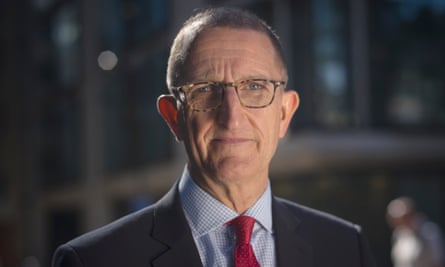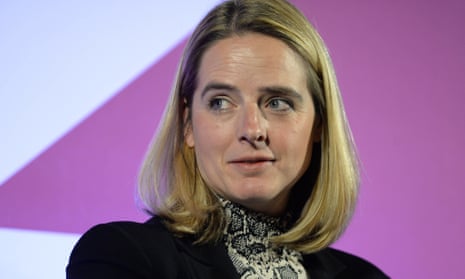The Equality and Human Rights Commission was established in 2007, merging the responsibilities of the Commission for Racial Equality, the Equal Opportunities Commission (which was concerned with sexism) and the Disability Rights Commission, but also charged with enforcing equality laws with respect to other protected characteristics such as sexuality and religion. Its annual budget has fallen from £70m at its inception to £17m.
Like its predecessors, it is a non-departmental public body but responsibility for appointing commissioners – there should be 10 to 15 at any time – was granted to the minister for women and equalities under the Equality Act 2006. This has led to accusations that appointments have become increasingly politicised.
David Isaac
When the City lawyer Isaac was appointed to chair the EHRC in 2016, two parliamentary committees wrote to Nicky Morgan, the then minister for women and equalities, to warn there could be a conflict of interest because his legal firm Pinsent Masons carried out “significant work for the government”.
Harriet Harman, the chair of parliament’s joint committee on human rights, said there was “obviously a conflict of interest” because the EHRC often took cases against the government. Isaac, an equity partner in Pinsent Masons with an annual income of £500,000 a year, told MPs he would not be carrying out any work for government clients during his chairmanship. Isaac left the EHRC in August this year.

Pavita Cooper
In 2013, Cooper made a donation of £3,500 to the Conservative party but on her appointment to the commission in 2018 she did not declare any political activity. She and her husband, Steve, held a fundraiser for the then Tory MP for Brentford and Isleworth, Mary Macleod, at which the special guest was George Osborne. Cooper told Newsweek that Macleod was a “close friend” and that she had never made any other donations nor been a member of a political party. She said she would update her EHRC declaration of interest.
Swaran Singh
The academic’s views came under scrutiny when he was announced as chair of the Conservative party’s inquiry into its handling of complaints about discrimination, including Islamophobia, shortly after leaving the EHRC.
In a piece entitled Is Britain a racist country?, he wrote that it is “not right to expect the UK to live up to an unrealistic standard, where every individual is non-racist”. He also argued that “the racism charge” forced politicians to “act before they have had time to think”.
Dr Zubaida Haque, the then deputy director of the Runnymede Trust, criticised the appointment to the Tory party inquiry of “someone who believes that racism is a contested term and institutional racism doesn’t exist”.
David Goodhart
The appointment of Goodhart, one of four new commissioners announced earlier this month, was criticised by equality campaigners. The writer and journalist argued “hostile environment” measures should not be watered down in the wake of the Windrush scandal. He has also described complaints of systemic racism as “statistically naive” and argued that “white self-interest is not same thing as racism”.
Goodhart responded by saying he had always described the Windrush scandal as shameful, adding: “This was not the so-called ‘hostile environment’ working, it was an egregious error. The real question is how we make status-checking fair.”
Jessica Butcher
Appointed at the same time as Goodhart, Butcher has said modern feminism disempowers women. In a 2018 talk, she said: “Feminism, like other forms of identity politics, has become obsessed with female victimhood.”
Sam Smethers, the chief executive of the Fawcett Society, said recent appointments suggested “the government is more interested in undermining the credibility of the EHRC rather than ensuring we have an independent and effective statutory body”. In response to the criticism, Butcher, who describes herself as an “old-school feminist”, said she would work “to advance equality issues in the UK”.









